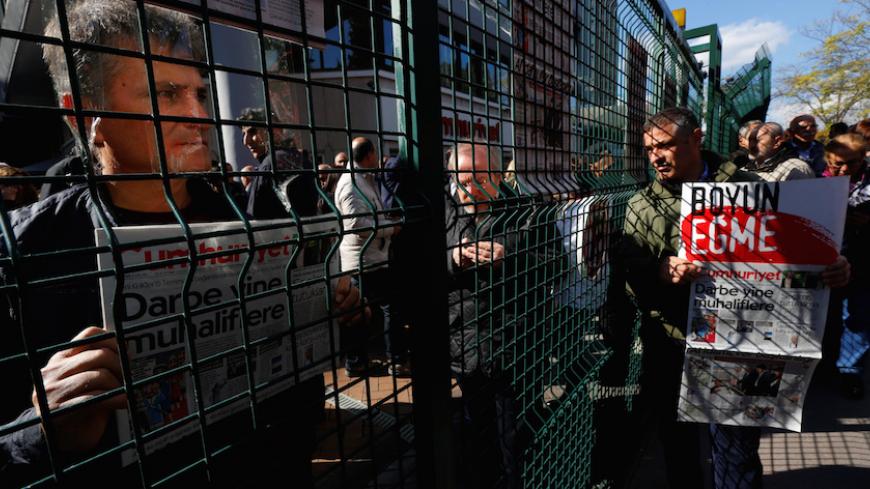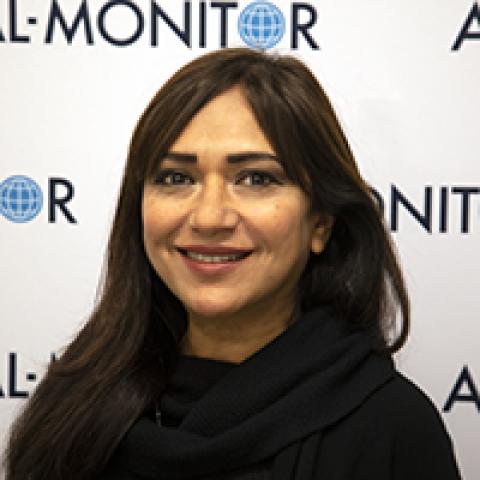“An accelerated descent into dictatorship” was how one journalist summed up the Oct. 31 raid on Cumhuriyet, one of a handful of surviving opposition outlets, which saw its editor-in-chief Murat Sabuncu detained along with several senior editors on alleged terror charges in Istanbul.
Those arrested at dawn this morning included cartoonist Musa Kart, veteran columnist Aydin Engin, chief financial officer Gunseli Ozaltay and editorial board member and columnist Kadri Gursel, who also writes for Al-Monitor.



